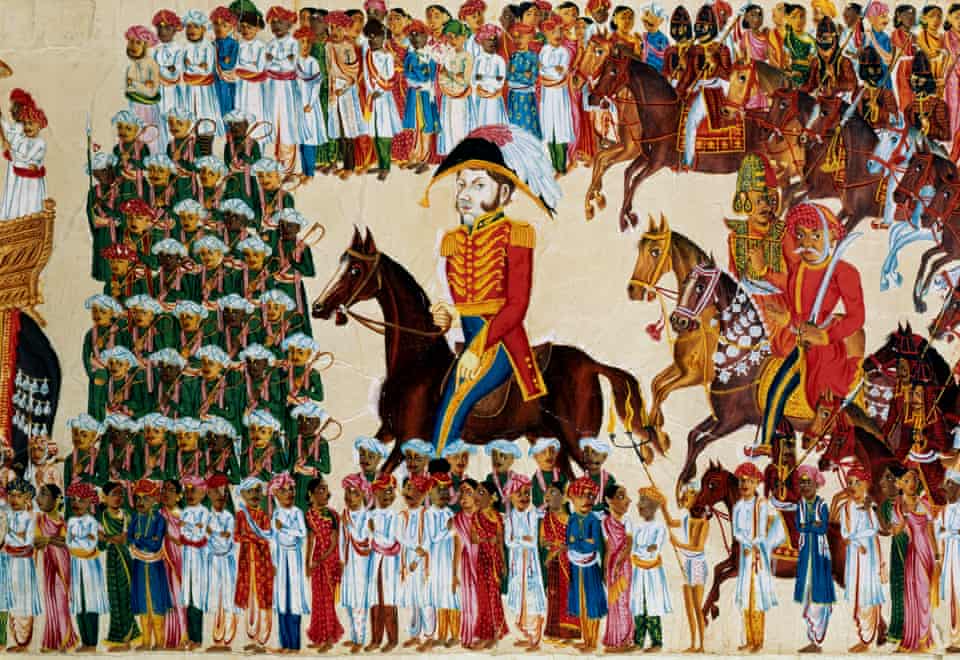📚 Read Also: Here’s A Muslim Geographer You Should Know

The Mughals and the British
The Mughal era was one of prosperity and peace in India, despite wars with the Hindu Rajputs. The Muslim Mughal sultans protected Hindus, their temples, and their rights and traditions.
Two tendencies developed amongst Muslims then. The first was reformist, represented by darul uloom of Deoband, and entailed going back to Quran and Sunna, and the second was led by Syed Ahmed Khan, founder of Aligarh University, and worked to spread western education amongst Muslims.
The Mughal era also witnessed the ascendance of the British, who established the East India Company to control resources in India. The British military conquest started in 1764 after the battle of Buxar, which made the sultan a nominal figure with no real power. In 1857, Hindus and Muslims staged the Indian Rebellion, which started with Lord Canning declaring Bahadur Shah the last of the Mughal sultans, with no one after him to hold this title.
A main trigger for such rebellion was that Indian soldiers were forced to use new cartridges that are wrapped in paper greased with cow and pig fat — which they had to open by mouth —, forbidden for Muslims and Hindus.
Other main reasons for resentment against the British was their policies that aimed at crashing the Indian economically, imposition of foreign education, Christian missionaries.
British colonialism opened a new era for Hindu-Muslim relations in India. The British intended on marginalizing Muslims after their role in the rebellion that Britain successfully crushed.
Lord Ellenborough, India’s governor, was convinced India’s Muslims are Britain’s main enemy, as he clearly said: “The Muslim element in India is Britain’s bitter enemy; the British policy should aim at favoring Hindus and use their help get rid of the danger that is threatening Britain in India.”
British policy was a catastrophe for Muslim communities, as they lost almost 95 percent of their land, and were marginalized in the country’s curricula that tailored to deride Muslims and their belief.
Literacy among Muslims dropped to 20 percent of the population in 50 years after being 100 percent, and they were largely excluded from posts in the government. Communal clashes took place between Muslims on one side and Hindus and Sikhs on the other because of their involvement with the British in their discriminatory policies against Muslims.
Two tendencies developed amongst Muslims then. The first was reformist, represented by Dar Al-Uloom Deoband, and entailed going back to Qur’an and Sunnah.
The second was led by Sir Syed Ahmed Khan, founder of Aligarh University (1857), which was aimed at spreading Western education amongst Muslims and the propagation of the belief in the inevitability of separation between Hindus and Muslims.
Khan refused the ideas of the Indian Congress and Muslims’ joining it, and he called for an independent Muslim body, thus establishing All-India Muslim Educational Conference, from which the Muslim League was born that propagated the idea of establishing a separate state for Muslims.
To be continued…
This article is from our archive, originally published on an earlier date, and highlighted now for its importance
Pages: 1 2 3